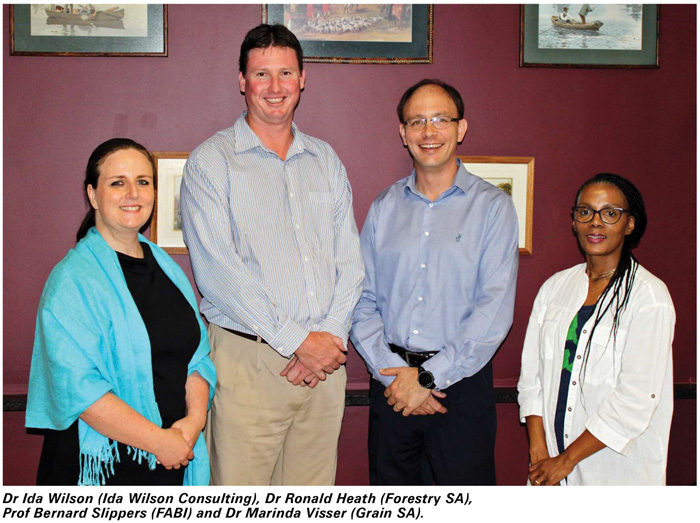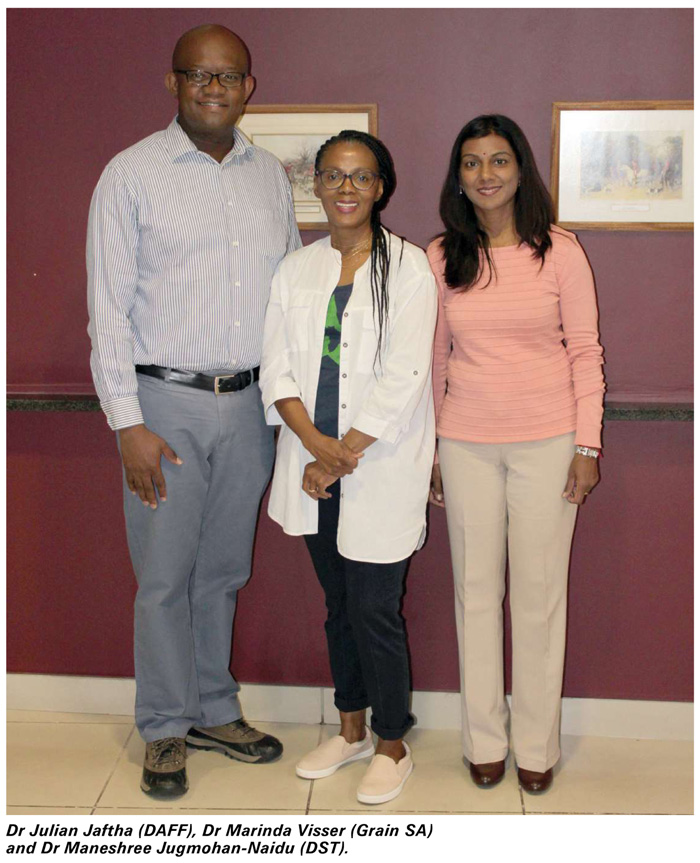July 2019
| Article submitted by the Grain Research and Policy Centre. Send an email to Miekie Human, Research and Policy Officer at miekie@grainsa.co.za |  |
Crop protection is a vital aspect for all production areas and summer grains are no exception. Research has gone a long way in supporting crop production in South Africa. However, critical evaluation of the current research environment is crucial to ensure research projects are relevant and outcomes adequately address producers’ needs.
CROP PROTECTION WORKSHOP FOR SUMMER GRAINS
A Workshop was held on 4 April in Pretoria and was attended by representatives from industry, government and public/private research institutions. The aim of the workshop was to discuss the organisational structures that need to be implemented in order to facilitate relevant, outcomes-based and producer-focused research projects to address the crop protection needs of the summer grain production region.
In addition, the workshop served as an initial step to foster closer collaboration between government, industry and research institutions.

TRUST IS KEY
Dr Ronald Heath (Forestry South Africa) and Prof Bernard Slippers (Forestry and Agricultural Biotechnology Institute, FABI, University of Pretoria) shared strategies implemented by the Forestry industry to ensure a sustainable research environment which delivers return on investment. The importance of building trust relationships between stakeholders – especially with government – was identified as one of the key areas which led to the successful initiation and development of research structures within the Forestry Industry.
Dr Julian Jaftha (Department of Agriculture, Forestry and Fisheries, DAFF) provided insight into the structures currently in place to prevent and manage entry of quarantine pests, pathogens and weeds into South Africa. Despite budgetary constraints, government welcomes collaboration with industry to strengthen South Africa’s national biosecurity.
The need for clarity on the capabilities, capacity and infrastructure for appropriate application of available funding was emphasized by Dr Maneshree Jugmohan-Naidu (Department of Science and Technology, DST).
BREAK DOWN THE SILO MENTALITY
Numerous successful collaborations are already taking place across institutions and also between public/private research institutions, industry and government with all of the respective stakeholders. However, the number and quality of research networks need to be expanded to ensure a sustainable research environment.
Collaboration across disciplines and institutions can break down barriers resulting from a silo mentality due to competition for limited funding.

EXCEPTIONAL EXPERTISE DEVELOPED IN SOUTH AFRICA
The workshop provided a platform for some of our country’s most renowned grain researchers as well as some brilliant younger researchers to interact with each other and with government. The wealth of knowledge and experience combined with youthful vitality led to a productive meeting which delivered feasible future possibilities. Furthermore, continual involvement of students and young researchers with industry-relevant research will ensure an innovative and sustainable research environment for the summer grain production region.
FUTURE DIRECTIONS
A lot of work still lies ahead in restructuring crop protection research for the summer grain production region. This workshop has been a good first step forward in developing a strategic plan for research as well as to foster collaboration between stakeholders. Grain SA will continue deliberations with partners to ensure a strategy is devised that is inclusive of all relevant role-players, which prevents duplication, strengthens existing programme and most importantly – is of benefit to all grain producers.

Publication: July 2019
Section: Pula/Imvula